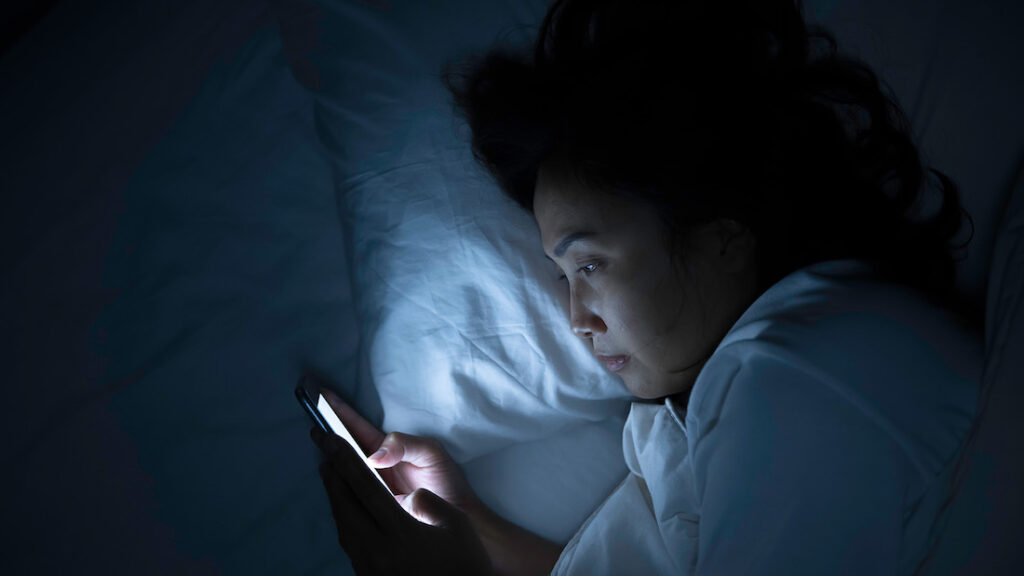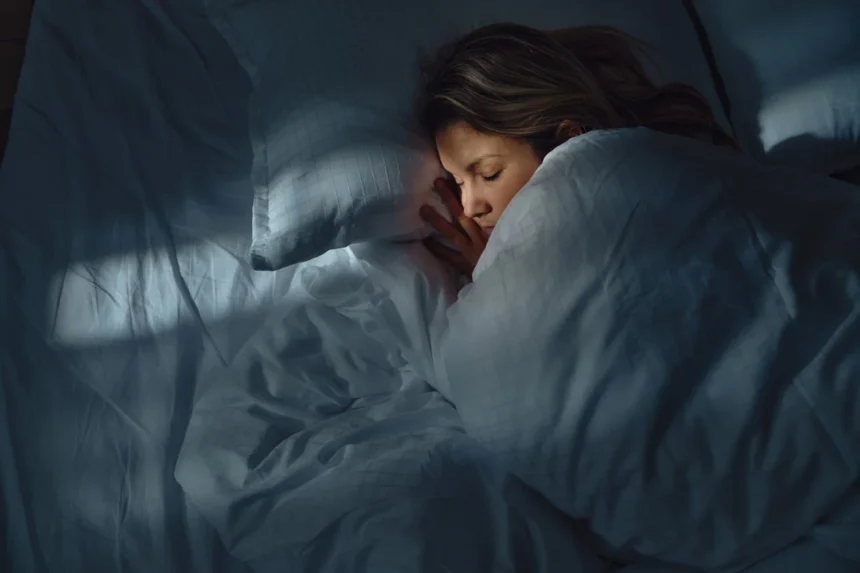Many people in the United States struggle to fall asleep or stay asleep through the night. Stress, long work hours, screens, late-night snacking, and irregular routines can all affect your sleep. While sleep medications may work for some people, they are not always safe for long-term use. The good news is that you can learn how to sleep better without pills by making small but powerful lifestyle changes based on science.
This guide will walk you through the most effective natural methods approved by sleep experts. Each solution is easy to follow, safe, and can fit into the busy lifestyle of Americans. By the end, you will know exactly how to create a sleep routine that supports your mind, body, and long-term health.
If you love health-focused guides like this, you can explore more wellness tips on HealthGuiders.com to stay updated on everyday health solutions.
Why Good Sleep Matters More Than You Think
Sleep is not just rest. It is a process where your body heals, repairs, and restores energy. Poor sleep can affect your mood, weight, hormones, heart health, and memory. Many Americans feel tired even after 8 hours in bed because the sleep quality is not good. Improving your sleep naturally can help you feel fresh, focused, and happier every day.
Create a Sleep Schedule That Matches Your Body Clock
Your body loves routine. A fixed sleep schedule trains your brain to feel sleepy at the same time daily.
Going to bed and waking up at the same time every day helps your internal clock stay balanced. Many sleep experts say that even one late night can disturb your rhythm.
Try going to bed within the same 30-minute window each night. Once your body adjusts, falling asleep becomes easier and more natural, without needing pills.
Reduce Screen Time One Hour Before Bed

Most Americans use their phones, laptops, or TVs late at night. But screens produce blue light, which tricks your brain into thinking it is daytime. This lowers melatonin, the hormone that helps you sleep.
Turning off screens at least one hour before bed gives your brain time to wind down. If you must use your phone, try reading something calm or switch to a warm light mode.
A peaceful bedtime routine sends a signal to your mind that it is time to rest.
Build a Calm Night Routine That Helps You Relax
A relaxing routine tells your brain that bedtime is near. You can try activities such as reading a gentle book, taking a warm shower, stretching, or listening to soft music.
Doing the same relaxing habits every night builds a pattern your body will start to follow. Over time, the moment you start your routine, your mind naturally becomes sleepy.
Make Your Bedroom a Sleep-Friendly Space
Your sleep environment plays a big role in how long and how deeply you sleep. Most people do not realize their room might be too bright, too noisy, or too warm.
Sleep research says that a cool, dark, and quiet room helps your brain enter deep sleep faster. You can make simple changes like using blackout curtains, lowering the room temperature, and keeping your bed clean and comfortable.
Even reducing clutter in your room can help you relax mentally and fall asleep faster.
Avoid Caffeine and Heavy Meals Before Bed
Coffee, tea, chocolate, and energy drinks all contain caffeine. Many Americans drink coffee even in the evening without noticing how it affects their sleep.
Caffeine stays in your body for hours, making it harder for your brain to shut down at night. Try not to have caffeine after 2 PM to avoid sleep trouble.
Heavy meals can also cause discomfort, digestive issues, and acid reflux at night. Lighter dinners and herbal teas can help your body relax before bedtime.
Exercise in the Day for Better Sleep at Night
Regular physical activity supports good sleep naturally. It reduces stress, improves mood, and helps your body feel tired in a healthy way. The best time to exercise is during the daytime. Exercising too late at night may energize your body and delay sleep.
Even simple activities like walking, stretching, or home workouts can help you fall asleep faster and wake up refreshed.
Manage Stress With Simple Mind-Body Techniques
Stress is one of the biggest reasons Americans cannot sleep well. When your mind feels heavy or worried, your brain stays alert even when you lie down.
You can try simple stress-relief techniques like slow breathing, guided relaxation, light yoga, mindful journaling, or prayer. These activities calm your nervous system and make it easier for you to fall asleep naturally.
You do not need pills to quiet your mind. You only need the right habits.
Get Sunlight During the Day to Improve Melatonin Production
Exposure to natural light during the day helps regulate your circadian rhythm. Just 15–30 minutes of sunlight in the morning can improve your sleep at night.
Sunlight boosts serotonin, a hormone that later turns into melatonin in the evening. People who stay indoors too much often struggle with poor sleep patterns. Step outside whenever you can, even if it is just a short walk.
Limit Alcohol and Nicotine for Better Sleep Quality
Many people think alcohol helps them sleep faster. While it may make you feel sleepy, it lowers sleep quality and causes you to wake up often during the night.
Nicotine is also a stimulant that keeps your brain active. Avoid smoking and drinking late in the evening to prevent sleep interruptions.
Small changes in habits can completely transform your sleep cycle.
Try Natural Sleep Helpers That Are Safe
There are natural methods and ingredients that support sleep without medication. These include warm chamomile tea, lavender aromatherapy, and magnesium-rich foods like almonds or spinach.
These do not act like sleeping pills. Instead, they help your body relax naturally. Always choose gentle and safe options that support long-term sleep health.
When to Speak to a Doctor
If you have been struggling with sleep for many months, feel extremely tired during the day, or wake up gasping for air, speak to a doctor. Conditions like sleep apnea and insomnia need professional support.
Natural sleep methods work for most people, but it is always good to get medical advice if sleep problems continue.
For more health-focused guides, you can explore our wellness articles on HealthGuiders.com to stay informed and healthy.
Frequently Asked Questions About Sleeping Better Without Pills
What is the best natural way to fall asleep faster?
Relaxing your mind before bed is the best method. A consistent bedtime routine, warm showers, gentle reading, and dim lighting help the brain switch to sleep mode.
Why do I wake up in the middle of the night?
Stress, late meals, alcohol, room temperature, and noise can disrupt sleep. Try adjusting your environment and routine to reduce these triggers.
How many hours of sleep do adults need?
Most adults need 7–9 hours of good-quality sleep each night. The exact number varies for each person.
Can natural methods replace sleeping pills?
Many people improve sleep completely through natural habits. Pills are not always needed unless recommended by a doctor.
Does using the phone before bed affect sleep?
Yes. The blue light from phones lowers melatonin and keeps your brain awake. Try avoiding screens one hour before bedtime.
Final Thoughts
Better sleep without pills is possible for everyone. By improving your routine, environment, habits, and stress levels, you can fall asleep faster and wake up with more energy. These science-backed methods are safe, practical, and perfect for daily use in the United States. Start making small changes today, and your body will reward you with deeper, more peaceful sleep.




